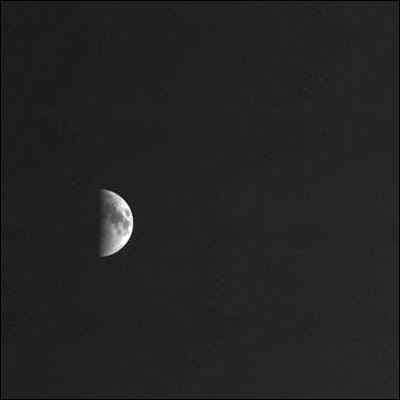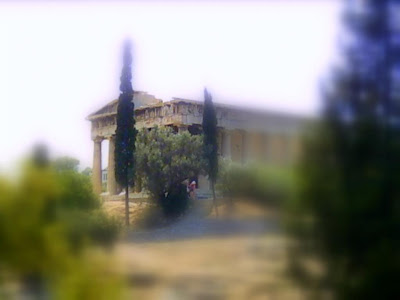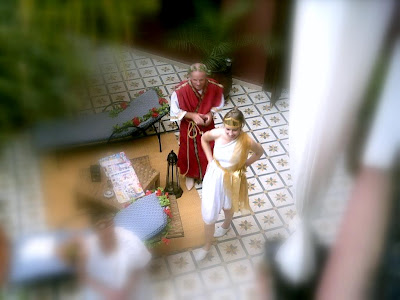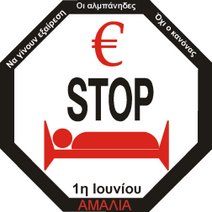31.1.07
29.1.07
27.1.07
ΤΟ ΕΧΟΥΝ ΠΑΡΑΚΑΝΕΙ!!!!

Bomb blast damages 2 bank branches in Athens
Bomb blast damages 2 bank branches in Athens
Front page / Hotspots and Incidents
01/26/2007 15:27 Source: PRAVDA ENGLISH EDITION
A small homemade bomb exploded outside two adjacent bank branches in downtown Athens overnight, slightly damaging the banks but causing no injuries, police said Friday.
Bomb blast damages 2 bank branches in Athens
The explosion, caused by a bomb made of cooking gas canisters, shattered windows of the branches of Emporiki and National banks in the central Kolonaki neighborhood, while a small fire that ensued caused minor damage before firefighters extinguished it, police said.
In a separate attack in the northern city of Thessaloniki, a gas canister bomb exploded in a diplomatic car belonging to a Swede working for a Balkans reconstruction organization, damaging the car's interior, police said. It was the second time the man's car was hit, they said. Authorities did not immediately release the man's name or further details of the attack, reports AP.
Meanwhile, police in the central Greek town of Itea said they had arrested a 55-year-old man for possession of dynamite, fuses and pistols. However, counter-terrorist police conducting the investigation said they doubted the man, who formerly worked at a nearby quarry, was involved in any terrorist activity.
may the force be with you
έγραψε ο
brexians
στις
02:19
0
σχολίασαν
![]()
Meanderings of the Mind: Requiem for a Dying Planet
έγραψε ο
brexians
στις
01:46
0
σχολίασαν
![]()
26.1.07
ΤΗΝ ΕΚΑΝΑ.....

Τον τελευταίο καιρό νοιώθω εξωγήινος…..
Πιάσατε τους τρομοκράτες , μας βρήκατε καινούργιους….
Οι γνωστοί άγνωστοι από αναρχικοί έγιναν αντεξουσιαστές
Ο Κοκος ξεπουλά την ιστορία μας και οι απανταχού εφοπλιστές και κοσμικοί τρέχουν να ψωνίσουν από το γιουσουρουμ του Λονδίνου οικόσημα…
Δέκα κάνουν κατάληψη (κλοπές, ασέλγειες, κλπ) και οι εκατό χάνουν εξάμηνο….
Εμείς σαν μαλακες πληρώνουμε νοίκια κλπ στην υγεία της κατάληψης και του ανεδαφικού νομοσχέδιου……
Οι προηγούμενοι ήταν κλέφτες και οι επόμενοι μας βγήκαν άσχετοι…….
Έμαθα ξαφνικά ότι είμαι πιο πλούσιος από μεγαλογιατρούς, μεγαλοδικηγόρους, μεγαλοξενοδόχους και ότι μου κάνουν χάρη που με πληρώνουν αφού ζουν με λιγότερα από εμένα…….
Άργησα να το καταλάβω αλλά είμαι εξωγήινος
ET GOES HOME……..!!
may the force be with you
έγραψε ο
brexians
στις
22:59
0
σχολίασαν
![]()
23.1.07
Zeus makes a comeback in Greece
Story Highlights
• Pagans honor ancient Greek god near 1,800-year-old temple
• Roman Empire banned worship in late fourth century
• No one permitted on temple grounds
• Pagans won court case recognizing ancient religion
ATHENS, Greece (AP) -- A clutch of modern pagans honored Zeus at a 1,800-year-old temple in the heart of Athens on Sunday -- the first known ceremony of its kind held there since the ancient Greek religion was outlawed by the Roman Empire in the fourth century.
Watched by curious onlookers, some 20 worshippers gathered next to the ruins of the temple for a celebration organized by Ellinais, a year-old Athens-based group that is campaigning to revive old religious practices from the era when Greece was a fount of education and philosophy.
The group ignored a ban by the Culture Ministry, which declared the site off limits to any kind of organized activity to protect the monument.
But participants did not try to enter the temple itself, which is closed to everyone, and no officials sought to stop the ceremony.
Dressed in ancient costumes, worshippers standing near the temple's imposing Corinthian columns recited hymns calling on the Olympian Zeus, "King of the gods and the mover of things," to bring peace to the world.
"Our message is world peace and an ecological way of life in which everyone has the right to education," said Kostas Stathopoulos, one of three "high priests" overseeing the event, which celebrated the nuptials of Zeus and Hera, the goddess of love and marriage.
To the Greeks, ecological awareness was fundamental, Stathopoulos said after a priestess, with arms raised to the sky, called on Zeus "to bring rain to the planet."
A herald holding a metal staff topped with two snake heads proclaimed the beginning of the ceremony before priests in blue and red robes released two white doves as symbols of peace. A priest poured libations of wine and incense burned on a tiny copper tripod while a choir of men and women chanted hymns.
"Our hymns stress the brotherhood of man and do not single out nations," said priest Giorgos Alexelis.
More than a mere re-creation
For the organizers, who follow a calendar marking time from the first Olympiad in 776 B.C., the ceremony was far more than a simple re-creation.
"We are Greeks and we demand from the government the right to use our temples," said high priestess Doreta Peppa.
Ellinais was founded last year and has 34 official members, mainly academics, lawyers and other professionals. It won a court battle for state recognition of the ancient Greek religion and is demanding the government register its offices as a place of worship, a move that could allow the group to perform weddings and other rites.
Christianity rose to prominence in Greece in the fourth century after Roman Emperor Constantine's conversion. Emperor Theodosius wiped out the last vestige of the Olympian gods when he abolished the Olympic Games in A.D. 394.
Several isolated pockets of pagan worship lingered as late as the ninth century.
"The Christians shut down our schools and destroyed our temples," said Yiannis Panagidis, a 36-year-old accountant at the ceremony.
Most Greeks are baptized Orthodox Christians, and the church rejects ancient religious practices as pagan. Church officials have refused to attend flame ceremony re-enactments at Olympia before the Olympic Games because Apollo, the ancient god of light, is invoked.
Unlike the monotheistic religions of Christianity, Judaism and Islam, the old religion lacked written ethical guidelines, but its gods were said to strike down mortals who displayed excessive pride or "hubris" -- a recurring theme in the tragedies of Euripides and other ancient writers.
"We do not believe in dogmas and decrees, as the other religions do. We believe in freedom of thought," Stathopoulos said.
Copyright 2007 The Associated Press.
may the force be with you
έγραψε ο
brexians
στις
11:11
0
σχολίασαν
![]()
KISSING FETUSES
According to Daily Mail, a twin leans over and kisses the cheek of her sister in a rare picture captured by a modern medical imaging technique known as 3D Ultrasound. The technique was developed at Duke University, one of world's leading centers in the area of modern medical imaging, in 1987. Traditional ultrasound imaging produces 2D images at a given depth, while 3D sonography produces images at different depths. Streaming 3D images into live video is called 4D ultrasound.

A real image (perceptible by humans) is formed by reflection of visible light off an object. However, modern medical imaging uses reflections and resonances of other sources such as X-rays (CT-scan), RF pulses (MRI), wideband infrared lights (OCT), acoustic waves (Ultrasound), and radioactive isotopes (PET) along with complex mathematical formulae to post process the measured reflections.

Related Internet Links:
Daily Mail
Medical Imaging
Picture courtesy of Wikipedia
may the force be with you
έγραψε ο
brexians
στις
10:17
0
σχολίασαν
![]()
17.1.07
into the uss3456-7 Minerva class
έγραψε ο
brexians
στις
15:47
0
σχολίασαν
![]()
16.1.07
edge
The EDGE of Existence programme aims to conserve the world's most Evolutionarily Distinct and Globally Endangered (EDGE) species by implementing the research and conservation actions needed to secure their future.
ZSL researchers will work closely with scientists from
countries in which EDGE species occur. The programme
also aims to train students from developing countries to
monitor and protect threatened species.
Follow the links to learn more about EDGE species and
how ZSL plans to conserve them.
Methods
Discover how EDGE scores are calculated for every mammal species.
Goals
Find out more about the goals of the programme.
Team
Learn about the people behind the EDGE concept.
Fellows
Meet the scientists and students EDGE is supporting.
may the force be with you
έγραψε ο
brexians
στις
20:54
0
σχολίασαν
![]()
15.1.07
Online astronomers seek out new worlds
Mon Jan 15, 3:35 AM ET
Amateur astronomer William Bianco doesn't huddle over a backyard telescope to hunt for undiscovered planets. He logs onto his computer.
Bianco, who was mesmerized by the intricacies of the universe as a young boy, is part of a growing online community that sifts through mountains of data collected by professional scientists in search of other worlds.
While Bianco has yet to make a landmark discovery, he savors the rush of teetering on the cutting edge of research.
Never before have amateur astronomers had so much unfettered access to celestial data once available only to scientists with huge telescopes. In the latest frontier of astronomy, professionals are increasingly enlisting the aid of novices with personal computers to help pore through images and data — all in pursuit of the next great breakthrough.
"We're in the golden age of astronomy," said Bianco, who keeps his day job as a political science professor at Indiana University.
Thanks to technology, novices are effectively turning from lonely skywatchers to research assistants. Even before the rise of virtual astronomy, amateurs did everything from tracking asteroids to detecting supernova explosions to eyeing new comets.
In 1995, neophyte stargazer Thomas Bopp gained fame for co-discovering what would be known as Comet Hale-Bopp. Two years ago, in what was billed as the first such find by an amateur in 65 years, Jay McNeil of Kentucky took a picture of a new nebula — an illuminated cloud of gas and dust lit by what is believed to be a newborn star.
Since the late 1990s, virtual astronomy has boomed. One of the earliest online citizen scientist projects was SETI(at)home, which distributed software that created a virtual supercomputer by harnessing idle, Web-connected PCs to search for alien radio transmissions.
While the SETI project hums in the background as a screen saver, the newer efforts require more human thought.
Bianco belongs to an Internet project called Systemic, which boasts 750 amateur planet hunters. Astronomers have already discovered more than 200 planets in far-off solar systems using traditional methods, yet there are likely more out there.
Participants download software and rifle through data that measure the tiny gravitational wobble in a star's motions in search planets that orbit stars other than our sun. Users also try to decode simulated data of planetary systems invented by the project managers — a task that will help the professionals better understand real extrasolar planets.
To participate, users select a star — real or simulated — and adjust other variables such a planet's mass and orbital period by moving a slider back and forth on the screen. The goal is to design a planetary system that best fits the data and then publish the answer online.
So far, online users have pinpointed hundreds of potential candidates, but only about five might actually be real, said Systemic project head Greg Laughlin, an astronomer at the University of California, Santa Cruz.
"It's not an aimless game," he said.
Although the Systemic Web site provides the search tools, it doesn't promote any of the discoveries, Laughlin said. Amateurs who want to publicize their find need to look for another outlet, such as a scientific journal to get credit.

Laughlin is no stranger to Web-based astronomy. He helped start another project in which amateurs point their telescopes at potential extrasolar planetary systems and look at dimming starlight to learn about a planet's size and composition. Unlike Systemic, users have to buy expensive equipment — including telescopes and cameras — to participate.
Before Internet-based astronomy, it took a long time for novices to report their discoveries. High-speed, always-on Internet access has blurred the line between the professionals and amateurs, said Terry Mann, president of the Astronomical League, made up of over 240 U.S. amateur astronomy clubs.
Last year, Mann signed up to analyze a repository of online images of the first-ever microscopic grains of star dust brought back to Earth by a NASA spacecraft.
The work is painstaking. Mann and her fellow 25,000 volunteers eye hundreds of thousands of digital images in search of minuscule carrot-shaped trails left by the capture of star dust, believed to be the leftovers from stellar explosions.
Mann has submitted 40 possible examples of star dust in the images. If correct, amateurs can get their names published in scientific papers written by researchers at the University of California, Berkeley, which manages the Stardust(at)home project.
"Amateurs can do real science. We can actually help," Mann said.
Andrew Westphal, associate director of the Space Sciences Laboratory at Berkeley, praised amateurs — it would probably take his whole life to find all the dust sprinklings, he said.
"It's stunning how good they are. I think they're better at this than we are," Westphal said.
The Internet has also benefited professional astronomers, who often have to fight for scarce telescope time at major research observatories.
Since 2001, the National Science Foundation has funded a $10 million project to create a "national virtual observatory" that compiles data from ground and space-based telescopes — including dazzling images from the Hubble Space Telescope and X-ray data from the Chandra Observatory. The project, which is still under development, is primarily used by professionals who want to go to one source to mine archival images. High school and college students are increasingly tapping into the Web site as well, said project manager Robert Hanisch of the Space Telescope Science Institute.
As far as amateur astronomer Bianco is concerned, the more people teasing out the mysteries of the cosmos, the better.
"It's going to take some time and collective effort to find what's out there," he said.
___

On the Net:
Systemic project: http://oklo.org
Stardust project: http://stardustathome.ssl.berkeley.edu
SETI project: http://setiathome.ssl.berkeley.edu
National Virtual Observatory: http://us-vo.org
may the force be with you
έγραψε ο
brexians
στις
22:36
0
σχολίασαν
![]()
14.1.07
Where Protons Will Play

On seeing the Alps for the first time, D. P. is reputed to have said, “They’re beautiful, but they’re dumb.” Near the foot of Mont Blanc, the greatest of the Alpine peaks, another sizable object is taking shape, also quite beautiful in its way, yet not at all dumb. In fact, its pristine geometries may be instrumental in revealing what have hitherto been some of nature’s deepest secrets.
It is called the Large Hadron Collider, or L.H.C. for short. Its shell is a more or less circular tunnel, some 17 miles in circumference and buried several stories underground, that straddles the Franco-Swiss border. Within this tunnel, a sort of racetrack for protons is being created. (Protons are, of course, usually found in the nucleus of an atom; they are members of the “hadron” family of subatomic particles.) The L.H.C. is scheduled to be up and running by the end of this year. When it is, flocks of protons will be made to zip around the tunnel in opposite directions at nearly the speed of light. Then they will be forced to crash into each other, with (it is hoped) spectacular results for physics.
Physicists, you see, learn about the subatomic world by smashing things together and then looking at the debris. Imagine a midair collision between two watermelons; it would make quite a mess, but nothing very interesting would result. Suppose, though, you get two protons to collide head-on. If they are moving fast enough, the energy of their collision, converted into mass à la Einstein’s E=mc2, will produce a shower of new particles. (It would be as if colliding watermelons splattered into a shower of pineapples, blueberries, mangoes and more exotic fruits.) Some of these particles will already be familiar to physicists. Others, though never before observed, might well have been hypothesized by one of the speculative theories that physicists busy themselves devising, hence giving us reason to think that a theory in question is true. Still others might come as a complete surprise, eliciting an amazed cry of “Who ordered that?”
Although the Large Hadron Collider is a European project, a half-billion or so of the $8 billion price tag is being kicked in by the United States as an official “observer.” This might be seen as recompense for Congress’s decision to cut off funds for a supercollider in 1993, leaving only a partly excavated hole in the ground in Waxahachie, Tex. Among the community of 7,000 experimenters working at the L.H.C. — roughly half of the world’s particle physicists, coming from some 80 countries — the largest national contingent, numbering more than 700, will be American.

Physicists across the world are thrilled at the prospect of the Large Hadron Collider being turned on later this year, and not just because they look forward to skiing nearby in Chamonix. For the past generation, physics has been in something of a rut. There have been plenty of findings from smaller colliders, but the results have mostly been expected. To make further progress — to understand why the basic forces of nature have such wildly varying strengths, or why elementary particles have the seemingly arbitrary masses they do, or how all these forces and particles fit together in a single mathematical framework — data from higher realms of energy are needed. The L.H.C. should take physicists to those realms.
And what will they find there? At the very least, the violent proton collisions in the shadow of the Alps are expected to conjure into existence the all-important Higgs boson, a key to understanding not only the masses of the known elementary particles but also the early history of the universe. (Some pessimists fear that this is the only discovery the L.H.C. will result in. If so — pas mal.) Then there are more exotic possibilities: quantum black holes (sound dangerous, evaporate quickly); “dark matter” particles; Kaluza-Klein particles that flit off into higher dimensions; particles like the gluino, the squark, the slepton and the wino (pronounced WE-no) — which, though silly-sounding, could furnish badly needed evidence that there might be something to string theory. Beyond all that, there is the exciting chance that something utterly undreamed of will be found — a not-uncommon occurrence when physicists ascend to new levels of energy.
Energy and beauty are deeply linked in contemporary physics. At the highest energies, like those immediately after the Big Bang, perfect symmetry prevails, and all the forces of nature merge into one. As the universe cooled down, this symmetry was broken in various ways, so the world we see around us is, as the Nobel laureate physicist Steven Weinberg has put it, “only an imperfect reflection of a deeper and more beautiful reality.” By reaching back toward the primordial energy, the L.H.C. promises to move us a little closer to that reality. This promise is bodied forth in the rounded, symmetrical forms of the collider itself — next to which the Alps, for all their grandeur, look just a bit slovenly.

may the force be with you
έγραψε ο
brexians
στις
19:43
0
σχολίασαν
![]()
13.1.07
too many tribbles: the other end of the signal
έγραψε ο
brexians
στις
21:41
0
σχολίασαν
![]()
ΜΗΝΥΜΑ ΤΟΥ ΘΕΟΔΩΡΟΥ ΚΟΛΟΚΟΤΡΩΝΗ
γυμνασίων αλλά και πολιτών)
Παιδιά μου! Εις τον τόπο τούτο, όπου εγώ πατώ σήμερα, επατούσαν και εδημιουργούσαν τον παλαιό καιρό άνδρες σοφοί και άνδρες με τους οποίους δεν είμαι άξιος να συγκριθώ και ούτε να φθάσω τα ίχνη των. Εγώ επιθυμούσα να σας ιδώ παιδιά μου εις την μεγάλη δόξα των προπατόρων μας και έρχομαι να σας ειπώ όσα εις τον καιρό του αγώνος μας, και προ αυτού και ύστερον από αυτον, ο ίδιος επαρατήρησα και από αυτά να κάνουμε συμπερασμούς και δια την μέλλουσαν ευτυχίαν σας, μολονότι ο Θεός μόνον ηξεύρει τα μέλλοντα.... Σας λέγω μόνον, πως (οι προπατορές μας) ήταν σοφοί και από εδώ επήραν και εδανείσθησαν τα άλλα έθνη την σοφία των...
Οι παλαιοί Ελληνες, οι πρόγονοί μας, έπεσαν εις την διχόνοια και ετρώγονταν μεταξύ των, και έτσι έλαβον καιρό πρώτα οι Ρωμαίοι, έπειτα άλλοι βάρβαροι και τους υπόταξαν. Υστερα ήλθαν και οι μουσουλμάνοι και έκανα ότι μπορούσαν για να αλλάξει ο λαός την πίστη του. Εκοψαν γλώσσες σε πολλούς ανθρώπους αλλά εστάθη αδύνατο να το κατορθώσουν. Τον ένα έκοπταν ο άλλος τον σταυρό του έκανε....
Οταν αποφασίσαμε να κάνουμε την επανάσταση δεν εσυλλογηστήκαμε, ούτε πόσοι είμεθα, πως δεν έχουμε άρματα ούτε ότι οι Τούρκοι εβαστούσαν τα κάστρα και τας πόλεις....
Εις τον πρώτο χρόνο της επανάστασης είχαμε μεγάλη ομόνοια και όλοι ετρέχαμε σύμφωνοι... και εάν αυτή η ομόνοια εβαστούσε ακόμη δυο χρόνους, ηθέλαμε κυριεύσει και την Θεσσαλία και την Μακεδονία και ίσως φθάναμεν και εως την Κωνσταντινούπολη. Τόσον τρομάξαμε τους Τούρκους όπου άκουγαν Ελληνα και έφευγαν χίλια μίλια μακριά....
Αλλά δεν εβάσταξεν...Αλλ' επειδή είμεθα εις τέτοια κατάσταση εξαιτίας της ΔΙΧΟΝΟΙΑΣ μας έπεσε η Τουρκιά επάνω μας και κοντέψαμε να χαθούμε και εις τους στερινούς επτά χρόνους δεν κατορθώσαμε μεγάλα πράγματα...
Πρέπει να φυλάξετε την πίστη σας και να την στερεώσετε, διότι όταν επιάσαμε τα άρματα, είπαμε πρώτα υπέρ πίστεως και έπειτα υπέρ πατρίδος...
Εμας μη μας τηράτε πλέον, το έργο μας και ο καιρός μας επέρασε...Εις εσάς μένει να ιάσετε και να στολίσετε τον τόπο, όπου ημεις ελευθερώσαμε και ,δια να γίνει τούτο, πρέπει να έχετε ως θεμέλια της πολιτείας, την ΟΜΟΝΟΙΑ, την ΘΡΗΣΚΕΙΑ, την ΚΑΛΛΙΕΡΓΕΙΑ ΤΗΣ ΠΑΤΡΙΔΟΣ και την ΦΡΟΝΙΜΟΝ ΕΛΕΥΘΕΡΙΑ.
may the force be with you
έγραψε ο
brexians
στις
17:45
0
σχολίασαν
![]()
Anti-Americanism and Americanization in Greece
by Mike Epitropoulos; June 13, 2004
Greece has long been viewed as "the black sheep" of Europe for its audacity to challenge and to criticize regional and global powers, like the United States. Firebrand criticism of US policy has been a trademark from national leaders, like the late Andreas Papandreou, through the sea of small political parties, all the way down to neighborhood coffeehouses and town squares. The story of Greece is rooted in a series of wrenching conflicts that had US fingerprints and/or stamps of approval that caused great dislocations, long-term domestic strife, and of course violence and death. At the same time, Greece's history, religion, and geographic location often served to temper anti-American strands, and in fact sometimes fueled processes of what we may call "Americanization."
Debates about Americanization, often used interchangeably with the term "globalization," abound in Greek popular culture. Older Greeks, and those of more traditional or religious bents lament the erosion of tradition and the concurrent explosion of the "xeno," the foreign.
For all of the brazen rhetoric and controversy of many of its political and cultural figures, Greece has remained firmly and squarely within the Western domain. The United States' Truman Doctrine explicitly aimed to keep Greece (and Turkey) within the Western sphere through an anti-communist program directed from Washington. Greece was also a beneficiary of the Marshall Plan, involved itself early in the process of European unification, and is one of only seven nations in the world that the US had as an ally in every major international conflict in the 20th century.
What we see then is a divide between the sentiments of popular Greek culture and the actions of its government. We encounter a "knee-jerk" anti-Americanism married to a more sophisticated and empirically-grounded anti-Americanism. And while this evolution has proceeded, we also witness an accelerating Americanization of cultural artifacts, social changes, and belief systems -- not "wholesale" but syncretic in nature.
Brief History of American and Foreign Intervention in Greece
Greece's history of foreign invasions and occupations is well-known and documented. For the time frame we are examining here (1945-Present) the interventions and consequences have been dramatic and significant. It is important to emphasize, however, that historically this represents a continuation of this history, that has most certainly left its marks on Greek culture and the Greek psyche.
As WWII was winding down, the partisan conflicts within Greece gave rise to its infamous and disastrous civil war. Greeks, who had been fighting side-by-side against Nazi invaders and occupiers -- influencing serious damage along the way -- had begun turning their weapons on each other. On the one side there was the communist-led National Liberation Front (EAM) and on the other (EDES). The mere mention of this history draws the ire and attacks from across the political spectrum to this day. What is relevant and controversial are the roles played by the US and the UK. These Western, Allied powers had begun sowing the seeds for the Greek civil war by providing and selling munitions to both sides and inciting conflict. N Certainly the case can be made that the extremely popular EAM had to be weakened so that free elections would not yield a victory for the Communist Party of Greece (KKE), many of whom sought alliances with Yugoslavia, and the Soviet Union. The civil war turned brother against brother, tore families apart, and spilled even more blood on the war-torn nation. It also gave rise to anti-Western sentiments that resonate to this day.
Out of this civil war comes a defeat for the Left which led the resistance against the foreign occupiers. The US government takes action in the region with the Truman Doctrine, which aimed to prevent the spread of communism, and directly interfered with Greek governance and politics. Aid to Greece was conditioned on the arrests and marginalization of the KKE and other Leftists. Why? Beyond the obvious geopolitical considerations and the commencement of the Cold War, economic considerations were (and continue to be) at the fore. US Presidential Aide, Clark Clifford justified intervention in Greece by noting that, "the disappearance of free enterprise in other nations would threaten our (US) economy and our democracy." This then is also important because it explicitly links economy to policy and our first US intervention to both anti-Americanism and groundwork for Americanization through the market.
While the legacy of the civil war continues, in diminished fashion, to polarize Greeks the world over, its place in the Greek collective memory is fading along with the generations that lived the civil war. Younger Greeks and today's cadre of politicians were deeply affected and in many instances radicalized by the coups of the Greek colonels that occurred in April 1967. A few years earlier, peace activist and politician, Gregorys Lambrakis had also fallen victim to an assassin of the Right. The emergence of the junta is one of a number of empirical cases where a democratically-elected reformist government, and the threat of increasingly-popular Leftist forces was overthrown by a pro-capitalist military leadership which was funded, aided, and supported by the US national security state.

The dictatorship lasted from 1967-74 and it had all the markings of totalitarian brutality. Individual and human rights suffered severe setbacks, and the martial law was characterized by police brutality and political and cultural repression. Free elections were suspended, and strikes, demonstrations, and public criticism of the government were outlawed. It was also made illegal to congregate publicly for any purpose except for church.
The public support that the US gave the colonels shocked and outraged many in the west. Political pressure was applied to the US government by academic constituencies from around the world, the European Economic Community, Hellenic diaspora groups and many other constituencies. The US position would leave more fodder for anti-Americanism in Greece.
By the end of their reign, the dictators themselves, managed to test the patience of the US by refusing to moderate in their iron grip on the country's democratic institutions, and by maintaining a strong nationalist bent in their economic dealings, often to the detriment of non-Greek capital and investors. Many speculate that the junta's persistence in pursuing oil exploration in the Aegean Sea may have been the key determinant in the United States' eventual withdrawal of support of Papadopoulos and his associates.
On November 17, 1974, protesting students at the National Polytechnic University confronted troops of the dictatorship in an ugly event that would epitomize the dictatorship's reign of terror and its ultimate demise. The government had grown weary of increasingly popular demonstrations pressuring for democratic reforms and had called for a stricter crack down. Students conducting a sit-in protest inside the entrance of the Polytechnic were suddenly crushed by a military tank killing people and igniting a revolutionary fire against the US-backed junta. The legacies of the civil war and the junta were intertwining and melding into an anti-American albatross.
If all this weren't enough, just as the sun was setting on the dictatorship's rule, conflict erupted in Cyprus between the Greek- and Turkish- Cypriots. The governments of Greece and Turkey, having had active political agendas in the island nation, would become centrally-embroiled in the conflict. Cyprus's Archbishop and President Makarios had angered the west, and particularly the US, by entering into business and political deals with the Soviet Union and other non-aligned countries. He emphasized this in an address before the Cypriot General Assembly, ". . .in an independent, non-aligned Cyprus free from the threats of face and all outside interference, its people, Greek and Turkish Cypriots, can live together in harmony with mutual respect for their legitimate rights. In these circumstances, there will be neither need nor purpose for the existence of armies [emphasis mine]." Makarios and his actions drew criticisms and threats from home and abroad, but he stayed the course reasoning that he would do what was best for Cyprus.
As is the case with our previous historical synopses, this will not be exhaustive, but instead remain general and above the fray of politically-loaded arguments that could otherwise unnecessarily weigh down the purpose of this paper.
An attempt was made on Makarios's life in an ill-conceived abortive anti-Makarios coup. The Greek colonels pushed for "unification" between Greece and Cyprus in both overt and covert ways. Already having angered the US government, the dictators drew more heat from the West.
Then, in July and August of 1974, after a series of incursions, Turkish forces invaded Cyprus. The Greeks responded in kind with military detachments, but by the end of the day, Turkey occupied 40% of the island nation, which it still occupies today. A pseudo-state is only recognized by Ankara was established and US peacekeepers have been permanent fixtures along the "Green Line."
The anger that the US (and UK) draw in this scenario lie in what emerges as US complicity once again. Apparently the US State Department, led by Henry Kissinger, was instrumental in planning and advising the Turkish government regarding the invasion of Cyprus. While the US never formally recognized the pseudo-state, the de facto separation and occupation of Cyprus -- with US support, according to Christopher Hitchens and others -- was fuel on the fire of anti-Americans sentiment in 1974.
For their part, the British maintained their presence on their former colony throughout the strife and up to this day. British bases in Cyprus are considered extremely valuable and equipped with the latest surveillance and intelligence technology. This is particularly important due to Cyprus's close proximity to the Middle East and Israel in particular. Recently the British have drawn international criticism for environmental destruction at one of their Cypriot bases.
Civil war fueled by "America"; military dictatorship and totalitarian regime directed, or at least supported by "America"; invasion of Cyprus and your Greek brothers and sisters, orchestrated and supported by "America" -- is it any wonder why many Greeks harbor anti-American sentiments? Let us emphasize that whether or not the aforementioned are true is really irrelevant. The fact is that by and large these notions that fuel a wide variety of anti-Americanism are ingrained in Greek society.
Cultural Resistance? Cultural Imperialism? Cultural Syncretism
We have established that while there has been a string of historical events of US and Western intervention in Greece that serve as empirical grounds for anti-Americanism, the Greek state has by and large remained solidly in the US fold in practice. How is it possible that the outspoken, politically articulate people of Greece allowed such a contradiction between public opinion and official actions? I believe a lot can be explained by the cultural component to this project. That is, American culture managed to continuously penetrate Greek society and culture in both wholesale and modified ways. Many will object here to my characterization of "American" culture and cultural artifacts. So, to be clear, I prefer this characterization, and the notion of "Americanization" over "globalization" because I take power considerations into account. And if we do so it becomes clear that the driving economic, "cultural" and political force of "globalization" is America, and thus my preference for the notion of "Americanization" and the process of cultural syncretism.
What then are the porous channels through which American culture has penetrated Greek society? Among the many and varied cultural media through which culture is transmitted, the history of the acceptance of American culture and cultural artifacts has primarily accelerated via youth culture and tourism development.

In earlier works, my colleague, Victor Roudometof, and I focused exclusively on youth culture in post-WWII Greece (Epitropoulos & Roudometof 1998). Within the realm of Greek youth culture -- and tourism -- it was possible to observe the effects of American culture on Greek society and the interaction between American and indigenous culture. Out analysis was strictly limited to those cultural activities that most prominently displayed American cultural influences, and leaves out the rich, national folk culture of Greece. This in no way should be taken as a proxy of the totality of the Greek lifestyle or culture.
Traditional Greek society lacked any industrial working class that characterized more developed Western European nations. Instead, Greece's population has many small shopkeepers, artisans, civil servants, professionals, self-employed, and farmers constituting the majority. (Lambiri-Dimaki 1983; Mouzelis & Attalides 1971; Mouzelis 1978; Tsoukalas 1987, Petmezidou-Tsoulouvi 1987; Diamontouros 1983). While still disproportionately large for a contemporary European country, agriculture was the dominant segment of the population until 1945. The primary institutions shaping Greek identity were, and to some extent still are, the kinship structure and the Greek Orthodox religion (McNeill 1978). It is during the time frame of our study, from 1945 to the present, that Greece has been transformed from an agricultural to an urban society. This transformation did not occur in the textbook fashion of development theories, from agricultural to industrial to service economies, however. Rather the changes were achieved through non-traditional sources: 1) tourism development and 2) the repatriation of currency from Greek immigrants in Western nations, primarily the US (Epitropoulos & Roudometof 1998; McNeill 1978; Ioakimidis 1984; McNall 1974a, 1974b, 1976). These fundamental structural shifts led to marked increases in standard of living and GNP, and more importantly for our purposes an eruption in consumer culture (Vergopoules 1985, Karapostolis 1984).
Two other changes that must be mentioned here are 1) a domestic "spatial" change, across regions of Greece, and 2) progressive cultural change. When combined with the aforementioned economic transformation, we have laid the empirical foundation from which to observe the "Americanizing" aspects of Greek (particularly youth) culture.
Post-WWII Greece experienced internal migrations that were characterized by the urbanization of Athens and Thessaloniki (the two largest cities of the country). Population exploded in these cities as people sought employment and recovery from the harsh days of war and occupation. These migrations served to also increase interaction between the Greek metropolitan centers and smaller, provincial towns, rural areas, and the Greek islands. Depopulation ravaged many areas, and it is primarily areas that have subsequently capitalized on tourism development that have reversed these trends (especially the Greek islands). For these and other reasons, many social commentators speak of a "two-speed" Greece, with one flowing with "globalization," and the other mired in the worst of the traditional society.
We move now to the culture change. The key feature of traditional Greek culture has been a powerful in-group/out-group division, wherein all those who fall within the group are "our people" (dikoi mas) whereas all those who fall outside the boundaries of the group are foreigners (xenoi) (Campbell 1964, 1983; de Bouloy 1974; Dimen & Friedl 1976; Pollis 1965; Vassiliou & Vassiliou 1973; Epitropoulos & Roudometof 1998; Triandis & Vassiliou 1972; Dubisch 1986; Kataki 1984). The key concept linked with this form of collectivism has been the very same one that fueled Greece's tourism reputation (in the earlier days), and that is philotimo. Philotimo is the sense of one's family honor and esteem, and is carried over to philoxenia, the warm hospitality offered to visitors and foreigners. Loyalty is reinforced only within the group where these values are upheld. In post-WWII Greece, the family has continued to be the dominant institution, thus remaining "a rather passive agent in social change and in most cases, a conservative one" (Gizelis et. al. 1984).
In Greece, the state and other public institutions operate on the basis of particularistic criteria -- namely clientelism -- that serve to reinforce dependency upon familial ties and networks. The family constitutes a socioeconomic unit that assumes the responsibility of finding (or making) suitable employment for their children, even if it requires a prolonged period of time (Tsoukalas 1986). This problem is apparently worsening and taking on new dimensions, with children living with and "off" of their parents into middle age, while avoiding marriage and opting instead for "rendezvous" relationships that are cheaper both economically and emotionally. This is still in line with tradition, where very few youth lived on their own, with students being an obvious exception, living away from home for studies. The resulting economic and emotional dependency on the family and its patriarchal structure are factors that contribute to the perpetuation of the traditional value system. The family is the main social agent for the transmission of traditional values from one generation to the next. The key difficulty for many Greek youth is making the transition to a state of maturity and independence, and these difficulties are attributed to their chronic dependency on the family (Tselika 1991; Lipovatch 1988; Petmezidou-Tsoulouvi 1987; Epitropoulos & Roudometof 1998).
Since WWII, and particularly since Greece's two tourism boom periods (1960s-early 1970s and the late 1980s-1990s), Greek society -- from urban to rural to island areas -- has become increasingly (some might say alarmingly) enmeshed in processes of globalization and Americanization, where contacts across, between, and within cultures and communities are greater in number and stronger in nature (Robertson 1992; Epitropoulos 2002; Epitropoulos & Roudometof 1998). The impacts of tourists on holiday, returning diaspora immigrants with generations of Greeks born abroad and exposed to American and other Western cultures, and -- importantly -- the impact of mass media (music, videos, movies, internet, clothing and fashion, sports, etc.) have contributed to Greece's increasing cultural contact with American and Western cultural artifacts and attitudes (Epitropoulos 2000; Epitropoulos & Roudometof 1998). It is precisely in the domain of leisure where cultural changes can most easily be identified. Further, in our earlier research, we focused on small towns and islands that were removed from the urban centers and where one could more readily witness and analyze such cultural changes (Epitropoulos & Roudometof 1998; Epitropoulos 2000). As more young people gain economic independence from family, they tend to expend and differentiate their leisure time and activities. In fact, since the first tourism boom, a distinctive Greek "youth culture" emerged, rendering a visible generation gap between WWII generations and those growing up in the transformational period (Lambiri-Dimaki 1983). Here we utilize Frith's definition of youth culture as, "the particular pattern of beliefs, values, symbols, and activities that a group of young people are seen to share" (1984). What we witness is a belief system shift from collectivism towards individualism, and more importantly an acceptance of American and syncretic cultural forms within youth culture.
Exemplary features of tourism development and the emergence of Greek youth culture have been the creation of a wide range of establishments oriented toward the youth, like kafeteries, discos, pubs and theme bars, and even modern cabarets (for an in-depth explanation of the particular forms see Epitropoulos & Roudometof 1998). These have by and large replaced traditional and patriarchal Greek kaffenia (coffeehouses). Of course what allowed all of this to happen was the availability of spending money for youth -- largely accruing from employment in tourism and the service sector -- that elevated them to the status of customers, independent of their parents and family. Another fundamental shift brought on by tourism development has been the gradual liberalization of the family and the sexes, allowing for more freedom of movement and more interaction between the genders (Epitropoulos & Roudometof 1998; Epitropoulos 2002, 1999a, 1999b, 1994, 1993). The changes, it must be stressed, have not been "wholesale" or on the scale of anything resembling vulgar notions of "cultural imperialism" (Tomlinson 1991). Traditional features, such as the emphasis on close proximity as well as the communal character, the theatrical nature, and a strong male-oriented character have been retained. Thus, American culture and its artifacts often represent idealized versions of US culture and really are not so foreign.
We have now established strong and growing tendencies of Americanization in Greece. Tourism and youth culture have helped shape and disseminate American cultural forms in syncretic ways, retaining local ownership to some extent. And as aforementioned, we observe a Greek state that barks anti-American rhetoric, but has arguably been a lapdog of US foreign policy, even in the face of blatant and decisive interventions into Greece's domestic affairs. Americanization continues unabated and is connecting with larger and increasingly younger segments of the population. American forms and attitudes are part and parcel of Greek pop culture, even in their syncretic forms.
The Faces of Anti-Americanism
Why then the reputation as the "black sheep"? Why the focus on Greek anti-Americanism? Who is driving this process? And who exactly are the "anti-Americans" in Greek society?
Anti-Americanism in Greece has many forms. It ranges from the sophisticated to the knee-jerk. In large part this is because the patchwork of "anti-American forces" is, itself, so varied and diverse. They are Leftist activists, academics, and internationalists; Right-wing nationalists, royalists, and traditionalists; secularists and Orthodox Christians, and even devotees of the Gods of Olympus. Each of these constituencies has its own grievances with the laundry list of US interventions. Each desires its cultural survival and advancement. And the uniquely Greek character of independence, free-thinking, and dissent reveals itself. So it is that Greek anti-Americanism transcends traditional ideological boundaries.
One of the most prominent faces of anti-American rhetoric was Andreas Papandreou, the late leader of the Pan-Hellenic Socialist Movement (PASOK). Trained in the US, Papandreou emerged as a key leader in the post-Junta era, invoking the phrase, "Exo oi Amerikanoi!" or "Out with the Americans!," in reference to US military bases in Greece. Papandreou, PASOK, and other Leftists also took strong anti-European Community positions until the 1980s as well.
It goes without saying that the KKE and other Leftist groups and parties held deeper resentments and animosities, accruing to their victimizations at the hands of the philo-American Greeks and particularly the dictatorship. The KKE had been outlawed but emerged again with the demise of the Junta. The Communist Party of Greece -- Interior (KKE-I) and later the Greek Left (EAR) held political lines of the New Left in Europe that were not so anti-European as much as anti-American -- a notable exception here.
In recent decades strong anti-American currents have been exhibited by conservatives in Greece as well. In particular nationalist Greeks of both mainstream and fringe Rightist groups view America with skeptical and distrustful eyes, calling for, "Greece for the Greeks!" Many cite the level of foreign direct investment in Greece and the extraction of profits as an assault on Greece and its sovereignty. Others argue that one of the reasons the colonels fell out of grace with their American "bosses" was that they dared to pursue autonomous policies -- such as oil exploration -- for Greek ownership and control.
The Greek Orthodox Church has also been critical of the US. The Greek Religious Right has pointed to the corrupting influences of Western, and particularly American, culture. The aforementioned consumerization and secularization, with increasing tendencies toward individualism over communalism and family are considered assaults on Greek traditions and customs. The Orthodox Church even went so far as to recommend a prayer to protect Greece:
"Lord Jesus Christ, Son of God, have mercy on the cities, the islands and the villages of this Orthodox Fatherland, as well as the Holy monasteries which are scourged by the worldly touristic wave" (Urry 1990).
In a related way, adherents of the renewed religion of the Olympian Gods rail against the de-Hellenization of history, the corruption of Greek traditions, and the hijacking of all of the achievements of Greek civilization. These people take aim at the global capitalist system and the US, however special emphasis is placed on the role of Jews in this process. While there exist other such strands of what might be considered anti-Semitism embedded across the spectrum of Greece's anti-Americanism, I will not enter into that analysis here.
The above anti-American critiques represent sources from which more sophisticated articulations of anti-Americanism arise. The broad critique of the Greek Left is empirically-grounded in the historical interventions of the West, and especially the US into Greece's efforts -- the civil war, the junta, Cyprus, and now so called "grey areas" of the Greek Aegean Sea. The Leftist critique also shares with their Rightist compatriots a cultural anti-Americanism that lambastes American forms for their shallowness while emphasizing the richness of Greek history, culture, and the bygone glory days of ancient Greece. Nationalists draw on this and call for aggressive protection of all that is "Greek," citing the powerful corruptive forces of America. And as has been stated, religious Greeks find fault with the modernizing. Americanizing processes that are changing traditional culture, particularly those de-emphasizing the roles of the Church and family.

I argue, however, that the greatest type of anti-Americanism in Greece is of the "knee-jerk" variety. This implies an anti-Americanism that, while focused on the "political" in general, is without thought or real analysis. This is particularly the case for a large segment of Greek youth. While this represents failure of the various groups with "sophisticated" anti-American mantras to pass their messages down to new generations, this can also be seen as a success for Americanization. Skinheads, young leftists, and ultra-Orthodox youth are embedded in various forms of Americanization, wearing its clothes, listening to its music, watching its movies, adopting its leisure patterns and forms (bars, discos, etc.). Granted, to their credit, and as is "natural," much of this occurs in culturally syncretic ways, with modern Greek forms, roots, or modifications. Nonetheless, these trends are accelerating, even while the streets of Greece full with anti-American protestors with their cause de jour.
Interestingly, those especially offended by Greek anti-Americanism and mum on the degree of Americanization of Greece -- and especially blind to Greece's blind following of US orders and foreign policies are the Greek-Americans. Greek-Americans, more than any other Greek diaspora group, have exhibited strong anti-Greek sentiments. These immigrants and their subsequent generations have taken a paternalistic view of their ancestors' homeland. A common sentiment that can be found among the harsher Greek-American critics of Greece is, "they (the Greeks) bite the hand that feeds them! N and because they adopt this notion, Greek-Americans argue that Greeks and their government have no right to publicly disagree or challenge America and should rather, "shut up."
It is true that as an immigrant group, the Greek-Americans have done disproportionately well across the socioeconomic indicators of wealth, income, education, and occupation. It is also the case that Greek-Americans have done so while maintaining close ties to the Orthodox Church and a lot of Greek (and now Greek-American) culture. So it is that there exists a strong sentiment among all Greek-Americans that they are "more Greek than the Greeks!"
While these diaspora Greek communities largely preserved the values of Hellenism while successfully negotiating the cultures of their adopted countries, an interesting phenomenon has been emerging. In the US, the assimilation of generations of Greeks into the social mainstream that soon there may be no discernable Greek diaspora based on culture or tradition. In fact we are witnessing a rising "anti-Greek" sentiment within the Greek-American community that can be compared to the actions of the Greeks left in Turkey after the great expulsions of the last century -- the genitsaroi, or the wartime, Nazi-collaborating, koukoulades.
Ironically, Greek-Americans and the Greeks of Greece they are dealing with significant and rapidly-changing cultural identities. These are part and parcel of the processes of globalization and/or Americanization, whichever one prefers. They also share the trends toward greater individualism and materialism, at the expense of family and the Church. With this, we witness increasing social problems for both groups, like involvement on crime, drugs, etc.
These questions, tensions, and issues have been elevated since the terrorist attacks of 9/11, 2002, in the US. The Greek-American contingent to Greece's Council of Hellenes Abroad (SAE), and other pronouncements in the Greek-American churches and communities have taken on hostile tones, highlighted by an "anti-Greek," full-page advertisement taken out in the Washington Post by, "a concerned Greek-American," on the eve of the visit of current Greek Prime Minister, Costas Simitis, to the White House.
Conclusion
In this paper, I have attempted to demonstrate the two sides of the same coin that are fraught with contradictions -- anti-Americanism and Americanization within Greece. There is a tragic and unfortunate history of Western and American intervention in Greece that has political and economic foundations from WWII to this day. In this process, Greeks from a broad swath of Greek society have been injured, killed, jailed, deposed, and robbed of personal and public wealth. Real reasons exist to justify a broad sentiment of anti-Americanism.
At the same time, we have seen how not only has the Greek state remained solidly in the American fold, but the cultural process of Americanization has continued unabated. Tourism and its consequence of giving rise to a more autonomous and independent youth culture and gender equality gave rise to new markets for leisure space and activities, ushering in bars, discos, music, foods, and other American cultural artifacts. While these changes further aggravated and provoked traditionalists, religious leaders and politics of both the Right and especially the Left, the masses of all Greek youth and recent generations have adopted Americanized culture and cultural forms to unprecedented levels. And in somewhat of a justification of Greek-Americans' attitudes, it can be said that increasingly, "Greeks are more American that the Americans!" referring to their degree of consumerism and individualistic materialism, abandoning a lot of traditions that Greek-American immigrants have largely maintained.
Again, while well-articulated versions of anti-Americanism exist across political, and ideological stripes, it is the "knee-jerk" anti-Americanism which is more prevalent, meaning that it is a) embedded in pop and populist culture, but also b) shallow and non-threatening to the process of Americanization. Greeks may consume disproportionate quantities of American culture and lifestyles. Take as a proxy the contradiction of being known for the longevity -- giving "Mediterranean Diet," while Greeks are the highest per capita consumers of cigarettes and meat in the EU, and while Greek youth exhibit among the highest incidences of obesity and childhood diabetes.

The processes and forms of anti-Americanism and Americanization continue to evolve, inextricably intertwined to American empire and global capitalism. We could illuminate much more with a particular class analysis of these processes wherein we could also see who benefits and who pays in economic and other terms. Anti-Americanism and Americanization are two sides of the same coin, neither of which will be going away any time soon.
[Mike Epitropoulos is at the University of Pittsburgh. This is a slightly edited version of a paper he presented at a conference in Oxford, England.]
may the force be with you
έγραψε ο
brexians
στις
17:19
0
σχολίασαν
![]()






















































